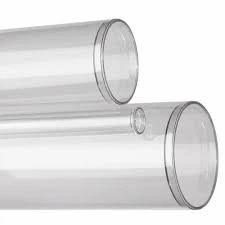Dec . 06, 2024 11:37 Back to list
hdpe spec sheet
Understanding HDPE Key Specifications and Applications
High-Density Polyethylene (HDPE) is one of the most versatile and widely used plastics in the world. Renowned for its durability, resistance to impact, and low moisture absorption, HDPE is a material that finds numerous applications across various industries. This article delves into the specifications of HDPE while discussing its properties, benefits, and typical uses.
What is HDPE?
HDPE is a thermoplastic polymer made from the polymerization of ethylene. It is characterized by its high density, which gives it significant strength and stiffness compared to other polyethylene materials. This high density arises from the close packing of polymer chains, which contributes to its robust physical properties.
Key Specifications of HDPE
1. Density The density of HDPE generally ranges from 0.941 to 0.965 g/cm³. This high-density structure enhances its rigidity and makes it suitable for applications that require a strong material.
2. Melting Point HDPE typically has a melting point of between 120°C and 180°C (248°F to 356°F), allowing it to be processed and molded easily in various manufacturing applications.
3. Tensile Strength HDPE exhibits impressive tensile strength, typically ranging from 20 to 37 MPa. This makes it suitable for products that require durability and mechanical strength.
4. Elongation at Break This property indicates how much HDPE can stretch before breaking, with values usually around 300% to 900%. This elasticity makes it a suitable option for products that need to endure considerable stress.
5. Impact Resistance HDPE has excellent impact resistance, which enables it to maintain its integrity under sudden shocks and impacts. This property is crucial for items used in construction and consumer goods.
hdpe spec sheet

6. Chemical Resistance HDPE is resistant to many chemicals, making it an ideal choice for containers and pipes that store or transport corrosive substances. It is commonly used in the agricultural, industrial, and even food sectors.
7. UV Resistance With appropriate additives, HDPE can exhibit good resistance to ultraviolet (UV) radiation, preventing it from degrading when exposed to sunlight over extended periods.
Benefits of Using HDPE
The benefits of HDPE make it a favored choice across different industries. Some of its advantages include
- Longevity HDPE has a long life cycle, often lasting decades without degradation, making it a sustainable choice. - Recyclability HDPE can be recycled, contributing to a circular economy. Many facilities accept HDPE products for recycling into new materials, reducing waste. - Cost-Effectiveness Due to its manufacturing process and longevity, HDPE typically presents a cost-effective solution compared to alternative materials.
Common Applications of HDPE
The versatility of HDPE allows it to be utilized in a wide array of applications, including
- Packaging HDPE is commonly used in the production of containers, bottles, and bags due to its strength and chemical resistance. - Pipes Its durability and resistance to corrosion make HDPE an ideal material for piping systems in water distribution, gas lines, and drainage solutions. - Geomembranes HDPE is extensively used as a geomembrane for landfills and natural resource management due to its impermeability and chemical resistance. - Toys and Consumer Goods Many everyday items, including plastic toys, kitchenware, and storage containers, are made from HDPE due to its safety and durability. - Construction HDPE sheets and plates are often used in construction applications due to their strength and ability to resist environmental stresses.
Conclusion
In summary, High-Density Polyethylene is a robust and versatile material that meets the demands of various industries. Its key specifications, including density, tensile strength, and chemical resistance, make it suitable for both everyday products and complex industrial applications. As industries continue to prioritize sustainability, the recyclability of HDPE further enhances its appeal. Understanding the specifications and properties of HDPE can help manufacturers and consumers alike make informed decisions about its usage in numerous applications.
-
PP U-channel: Chemical-Resistant, Lightweight & Durable
NewsAug.10,2025
-
Transparent PVC Pipe: Clear Flexible Tubing for Fluids
NewsAug.09,2025
-
Durable PP Rigid Sheet: Versatile & High-Quality Plastic Panels
NewsAug.08,2025
-
Premium Glossy PP Rigid Sheet – Durable & Versatile
NewsAug.07,2025
-
High-Quality HDPE Sheet | Durable Plastic Panels
NewsAug.06,2025
-
High-Precision PVC Rigid Sheets for Vacuum Forming | AI-Optimized
NewsAug.05,2025

